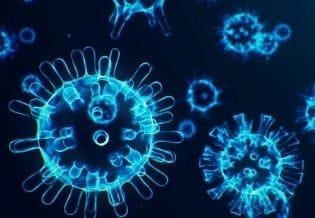Current Special Issues
Active Calls for Submissions on Focused Coronavirus Research Topics
Submit Your Research: Explore our current special issues and contribute your expertise to these focused collections addressing critical challenges in coronavirus research.
Active Special Issues
Long COVID: Mechanisms, Biomarkers, and Therapeutic Interventions
Guest Editor: Dr. Sarah Chen, Harvard Medical School
This special issue focuses on the emerging understanding of post-acute sequelae of SARS-CoV-2 infection (PASC), commonly known as Long COVID. We invite submissions addressing the pathophysiological mechanisms underlying persistent symptoms, identification of reliable biomarkers for diagnosis and prognosis, and innovative therapeutic approaches for managing long-term complications.
Topics of Interest:
- Neurological manifestations and brain fog
- Cardiovascular complications
- Respiratory dysfunction
- Immune system dysregulation
- Metabolic and endocrine effects
- Rehabilitation strategies
December 31, 2025
January 2026
All article types accepted
AI and Machine Learning in Coronavirus Research
Guest Editor: Dr. Michael Rodriguez, Stanford University
This special issue explores the transformative role of artificial intelligence and machine learning in advancing coronavirus research. We welcome contributions showcasing innovative AI applications in diagnosis, drug discovery, epidemiological modeling, and public health interventions, with emphasis on practical implementations and clinical validation.
Topics of Interest:
- Deep learning for medical imaging
- Natural language processing in research
- Predictive modeling and forecasting
- Drug discovery and repurposing
- Genomic sequence analysis
- Digital health applications
January 2026
February 2026
All article types accepted
Global Health Equity and COVID-19: Lessons Learned and Future Directions
Guest Editor: Dr. Amara Okafor, London School of Hygiene & Tropical Medicine
This special issue examines health disparities and equity challenges revealed and exacerbated by the COVID-19 pandemic. We seek contributions addressing social determinants of health, vulnerable populations, healthcare access, and strategies for building more equitable pandemic preparedness and response systems globally.
Topics of Interest:
- Racial and ethnic health disparities
- Socioeconomic impacts
- Rural and urban health differences
- Vaccine equity and hesitancy
- Global South perspectives
- Community-based interventions
December 01, 2025
January 2026
All article types accepted
Submission Guidelines for Special Issues
How to Submit
- Choose Your Special Issue: Select the special issue that best matches your research
- Prepare Your Manuscript: Follow our standard author guidelines
- Submit via Standard Process: Use any of our three submission methods
- Indicate Special Issue: Clearly mention the special issue title in your cover letter
- Peer Review: Your manuscript will undergo the same rigorous review process
Important Note: Manuscripts submitted to special issues undergo the same rigorous peer review process as regular submissions. Acceptance is based solely on scientific merit and quality.
Benefits of Special Issue Publication
Enhanced Visibility
Special promotional activities and targeted dissemination to relevant research communities.
Thematic Coherence
Your research appears alongside related work, creating comprehensive knowledge collections.
Expert Curation
Benefit from guest editor expertise and networking within specialized research communities.
Increased Citations
Special issues often receive higher citation rates due to focused readership and promotion.
Contact Information
Questions about our special issues or need assistance with your submission?
Special Issue Submissions
Email: [email protected]
Questions about submitting to current special issues
Contribute to Focused Coronavirus Research
Join our special issues and help advance understanding in critical areas of coronavirus research through collaborative, thematic publications.
Contact: For inquiries, please email [email protected]


